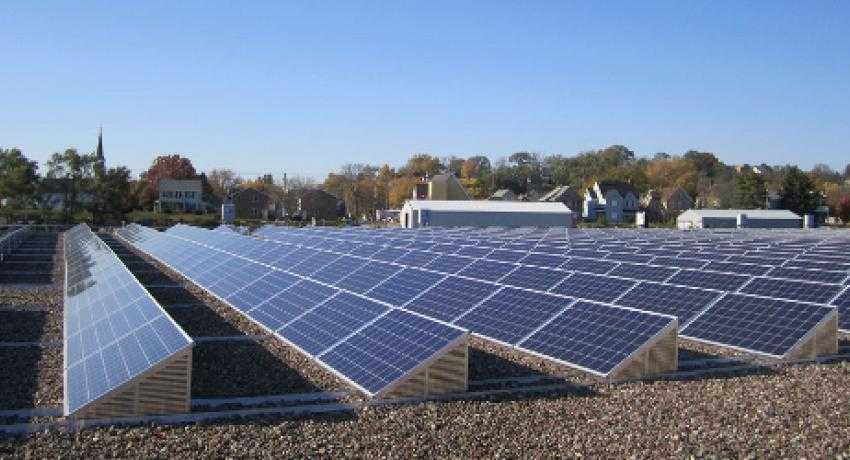Solar outshines utilities in Iowa court decision
Utilities lost a little more ground in their ongoing battle with the solar industry last week when the Iowa Supreme Court ruled that solar installers are allowed to sell power through power purchase agreements.
When solar advocates talk about “monopoly utilities,” they’re not being disparaging. Utility companies in most states are granted monopolies and are allowed to protect their rein over a region. No other utility companies can operate in their territories. State regulators are in place to protect the public and keep the monopoly from exploiting its customers.
Alliant Energy, whose parent company is Interstate Power and Light Company, appealed to Iowa regulators when solar installer Eagle Point put solar panels atop a Dubuque municipal building and signed a power purchase agreement with the city.
A power purchase agreement allows home and business owners along with nonprofit and government groups to install solar panels with no upfront cost, much like the solar leasing model employed by popular SolarCity. Instead of leasing the panels, the home and business owners agree to purchase the power they produce from the installer.
Utilities in 27 states don’t allow power purchase agreements, arguing that they make the solar installers who sell them into competing utility companies providing power to the monopoly suppliers’ customers.
Iowa operated in a gray area. The 4-2 Supreme Court decision in Iowa might have set a precedent for other Midwestern states, such as Wisconsin, that are about to hear similar cases.
The court determined that Eagle Point and other third-party solar companies aren’t stealing customers from the monopoly utilities. The city of Dubuque, for example, is still connected to the grid and still buys power from Alliant – just less of it. That means the power purchase agreement isn’t much different from an energy efficiency device.
The decision could have wide-reaching implications.
Third-party-owned solar has accounted for the lion’s share of distributed solar power generation installed over the last three years.
Because they don’t require any upfront investment and generally result in a monthly savings and a predictable electric bill, third-party-owned systems are wildly popular in the state’s and regions where they work.
If other state’s follow Iowa’s lead and determine that power purchase agreements and solar leases aren’t infringing on utility monopolies, it could open more than half the country up to an opportunity that it hasn’t previously had. And it could mean a big boost to business for third-party solar installers like Sunrun, SolarCity and Sungevity that now currently work in seven to 15 states each.
It’s also another example of customers winning out over utilities. If people can access clean, renewable energy affordably and reduce their expenses, regulators are starting to realize they can’t deny customers that right in an effort to protect utility company monopolies.




